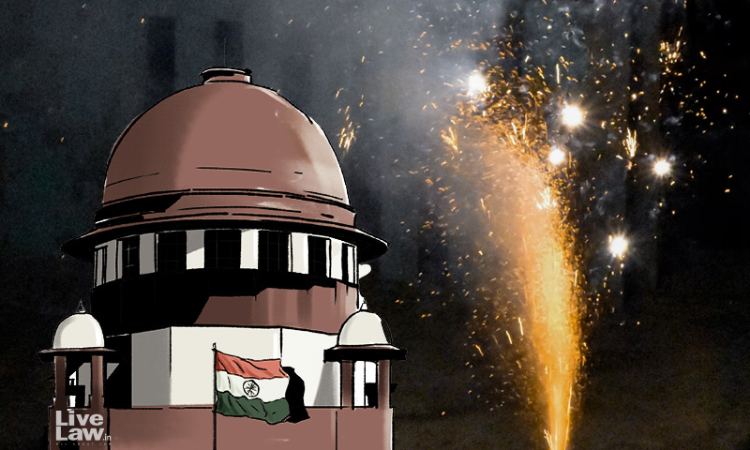Plea To Ban Firecrackers : Supreme Court Posts For Final Disposal On April 26
Srishti Ojha
20 April 2022 7:55 PM IST

Next Story
20 April 2022 7:55 PM IST
The Supreme Court on Tuesday decided to list the petitions filed seeking a ban on the sale, purchase and use of firecrackers in India on 26th April 2020 for final disposalA bench comprising Justice MR Shah and Justice Bopanna was considering the writ petition filed in 2015 by Arjun Gopal, Aarav Bhandari and Zoya Rao Bhasin, who were then aged between 6 months and 14 months, through their...
